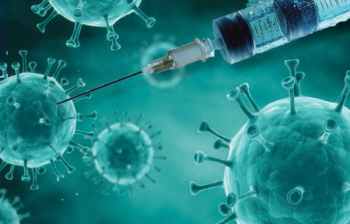
- December 2019
- Volume 4
- Issue 6
ACX-362E a Promising Potential Treatment for C difficile, First-in-Human Phase 1 Trial Demonstrates
Investigators observed no moderate, severe, cumulative, or dose-limiting adverse events leading to discontinuation, and ACX-362E was generally well-tolerated at all dose levels.
A first-in-human trial evaluating the safety, pharmacokinetics, and fecal microbiome effects of a novel DNA polIIIC inhibitor demonstrated the antibacterial’s promise as a potential treatment alternative to vancomycin for the treatment of Clostridioides difficile.
In a late breaking presentation at
The trial evaluated the safety profile, food effect, and systemic/stool pharmacokinetics of escalating single (150, 300, 600, and 900 mg) and multiple (300 and 450 mg) doses oral ACX-362E compared with placebo. A safety oversight committee reviewed the safety and pharmacokinetic data prior to dose-escalation within each cohort. Investigators compared the fecal microbiome effects of multiple doses of ACX-362E with 6 subjects receiving concomitant open-label vancomycin 125 mg 4 times daily.
A total of 44 subjects received ACX-362E; 24 received single doses, 12 received multiple doses, and 8 comprised the food effect group. Twelve subjects received placebo.
Investigators observed no moderate, severe, cumulative, or dose-limiting adverse events leading to discontinuation, and ACX-362E was generally well-tolerated at all dose levels. The mean plasma half-life was approximately 2 hours, with no further accumulation with repeat dosing.
“Systemic exposure was less than 1 ug/mL and decreased with food. Fecal concentrations during multiple dosing exceeded the C difficile [minimum inhibitory concentrations] (MIC90 = 4 µg/mL) by multiples of up to ~2500,” investigators reported. “ACX-362E had minimal effect on Bacteroidetes phylum and caused significantly less dysbiosis than vancomycin.”
The favorable safety profile, low systemic and high fecal concentrations, and favorable gut microbiome changes demonstrated by this first-in-human trial, compared with vancomycin, make ACX-362E a promising candidate for future clinical development for the treatment of C difficile, investigators concluded.
The study, A Randomized, Blinded, Placebo- and Vancomycin-Controlled, First-In-Human (FIH) Study of the Safety, Pharmacokinetics (PK), and Fecal Microbiome Effects of ACX-362E, a Novel Anti-Clostridial DNA Polymerase IIIC (polIIIC) Inhibitor, was presented as a late breaking oral abstract on Thursday, October 3, 2019, at IDWeek in Washington, DC.
Articles in this issue
about 6 years ago
The Year Ends With a Big Step in PrEP and PEPabout 6 years ago
Robert F. Poirier, Jr. MD, on the Approval of Lefamulin for CABPabout 6 years ago
Karam Mounzer, MD, on the Approval of Dolutegravir/Lamivudineabout 6 years ago
Two More Agents Bolster the Arsenal Against Gram-Negative Resistanceabout 6 years ago
What's on Your Antimicrobial Stewardship "Wish List"?about 6 years ago
Hepatitis A Outbreaks on the Rise in the USNewsletter
Stay ahead of emerging infectious disease threats with expert insights and breaking research. Subscribe now to get updates delivered straight to your inbox.
































































































































